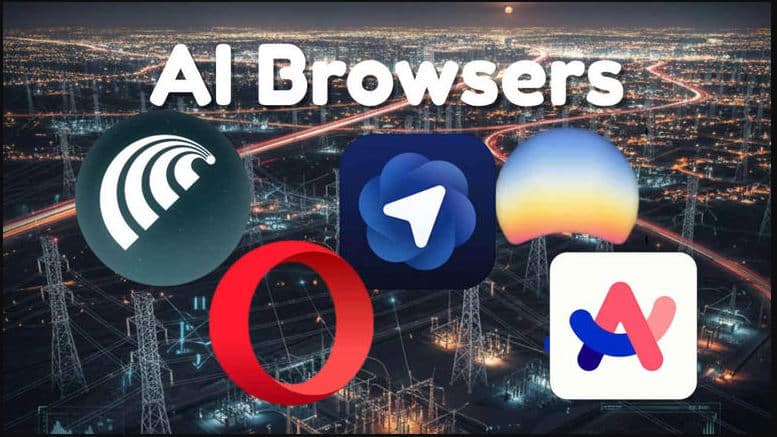AI Tools for Optimizing Mobile App User Engagement: A Comprehensive Guide
In today’s hyper-competitive mobile app landscape, user engagement is the cornerstone of success. With millions of apps vying for attention, developers and marketers must leverage innovative strategies to retain users, drive interaction, and foster loyalty. Artificial Intelligence (AI) has emerged as a game-changer, offering powerful tools to analyze user behavior, personalize experiences, and automate interventions. This article explores how AI tools are transforming mobile app user engagement, providing actionable insights and examples of their real-world impact.
1. Introduction: The Importance of User Engagement
User engagement metrics—such as daily active users (DAU), session length, and retention rates—determine an app’s long-term viability. Stagnant engagement can lead to user attrition, reduced revenue, and poor app store rankings. Traditional methods often fall short in addressing the dynamic needs of modern users, but AI brings precision and scalability. By harnessing machine learning and data analytics, apps can now anticipate user preferences, automate responses, and deliver hyper-personalized experiences.
2. Personalization Through AI: Tailoring the User Experience
Personalization is no longer a luxury—it’s a necessity. AI algorithms analyze user data (e.g., browsing history, purchase patterns, and preferences) to create tailored experiences. For instance, streaming platforms like Netflix and Spotify use AI-driven recommendation engines to suggest content, increasing user retention by 20-30% according to industry reports. In mobile apps, personalization extends to dynamic onboarding, adaptive interfaces, and targeted in-app messaging. Tools like Braze and Adobe Target enable developers to segment users and deliver content that resonates with individual interests.
3. Predictive Analytics and User Behavior Insights
AI excels at identifying patterns in vast datasets, allowing apps to predict user behavior. Firebase Predictions by Google, for example, uses machine learning to forecast whether users are likely to churn or make a purchase. By understanding these trends, developers can proactively address issues, such as sending re-engagement offers to at-risk users. Predictive analytics also helps in optimizing feature usage, ensuring users interact with the most valuable parts of the app.
4. Intelligent Chatbots and Customer Support
Chatbots powered by natural language processing (NLP) provide 24/7 support, reducing friction and improving user satisfaction. Zendesk Answer Bot or Dialogflow can handle common queries, freeing human agents for complex issues. For instance, Bank of America’s Erica uses AI to assist users with financial tasks, boosting engagement by 25% through instant, personalized support. These tools enhance user experience by offering timely solutions and fostering a sense of responsiveness.
5. Dynamic Content Adjustment: Real-Time Personalization
AI can dynamically adjust content based on user behavior, ensuring relevance. Apps like Pinterest use AI to curate feeds in real time, increasing time spent on the platform. Tools such as Mixpanel and Amplitude allow developers to track user interactions and automatically tweak UI elements or content layouts. This adaptability keeps users interested and reduces bounce rates.
6. Optimized Push Notifications: Timing and Relevance
Push notifications are a vital engagement tool, but their effectiveness hinges on timing and content. AI-driven platforms like Braze and Leanplum analyze user activity to determine the optimal send times and personalized messages. For example, a fitness app might send a motivational push notification at a user’s usual workout time, increasing open rates by up to 40%. Machine learning models also segment users, ensuring notifications are relevant to specific groups.
7. Enhanced Gamification: Creating Immersive Experiences
Gamification elements, such as challenges and rewards, can be elevated with AI. By analyzing user habits, AI can generate personalized challenges or loot boxes in gaming apps, keeping players motivated. Unity’s AI tools or GameAnalytics help developers design adaptive gamification strategies. For instance, a language-learning app might adjust difficulty levels based on user performance, maintaining engagement through tailored milestones.
8. Performance Optimization: Smarter App Functionality
AI isn’t just about user interaction—it also improves technical performance. Tools like Apptimize and Instabug use AI to detect crashes, optimize load times, and reduce bugs. A smoother, faster app experience directly impacts engagement, as users are less likely to abandon apps with poor performance. Additionally, AI can predict server load and allocate resources efficiently, ensuring reliability.
9. Data-Driven Decision Making: Insights for Continuous Improvement
AI tools aggregate and analyze user data to inform strategic decisions. Platforms like Amplitude and AppsFlyer offer predictive insights on user acquisition and retention. For example, an e-commerce app might use AI to identify which features drive conversions, guiding future updates. This data-centric approach allows for continuous refinement, ensuring the app evolves with user needs.
10. Challenges and Ethical Considerations
While AI offers immense benefits, challenges persist. Data privacy concerns, such as compliance with GDPR and CCPA, require careful handling. Additionally, AI models rely on high-quality data, and poor data quality can lead to subpar recommendations. Developers must also address ethical issues like algorithmic bias, ensuring personalized experiences are inclusive and fair. Balancing automation with human oversight is key to maintaining trust.
11. Conclusion: The Future of Mobile App Engagement
AI tools are revolutionizing how mobile apps engage users, offering solutions that range from personalized recommendations to predictive analytics and smart automation. By integrating these technologies, developers can create more intuitive, responsive, and user-centric experiences. As AI continues to evolve, its role in mobile app engagement will only grow, enabling businesses to not only retain users but also turn them into loyal advocates. The future of mobile apps lies in their ability to adapt, anticipate, and interact—capabilities that AI makes possible.
Final Thoughts
Adopting AI for user engagement isn’t just about keeping up with trends; it’s about creating a competitive edge. Whether through smarter notifications, real-time personalization, or predictive insights, AI empowers apps to deliver exceptional experiences. As the technology matures, the focus will shift towards ethical implementation and seamless user integration, ensuring that engagement strategies remain both effective and trustworthy.







